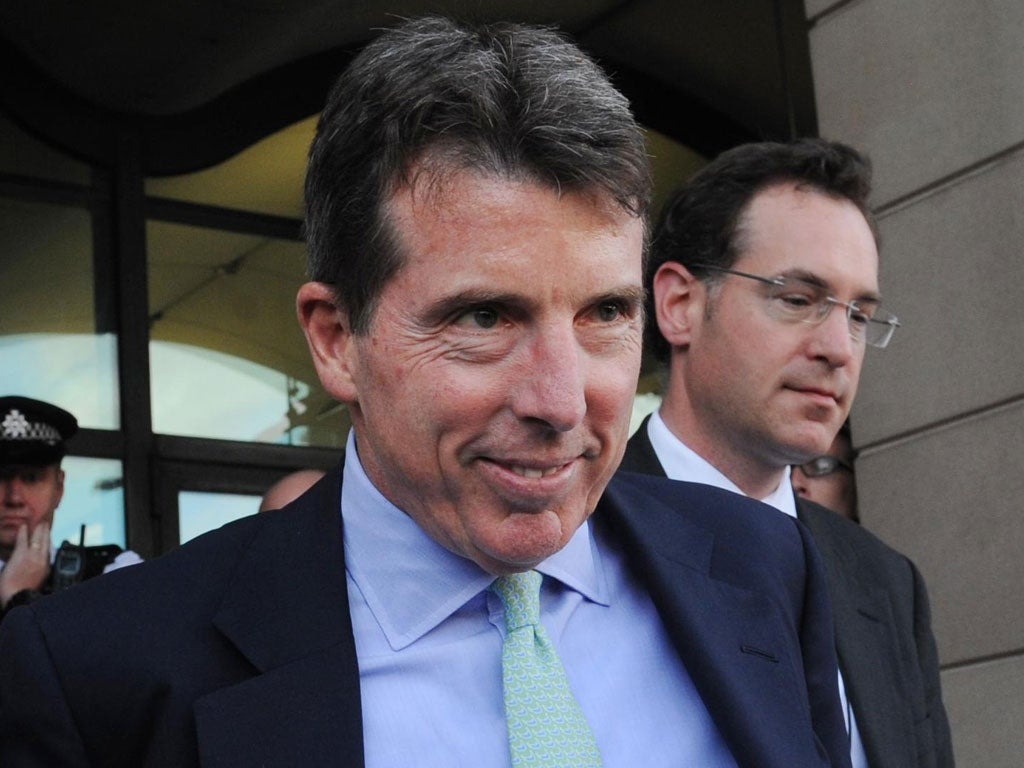Libor scandal – the net widens
Former Barclays' employees could also be questioned by parliamentary banking inquiry

Your support helps us to tell the story
From reproductive rights to climate change to Big Tech, The Independent is on the ground when the story is developing. Whether it's investigating the financials of Elon Musk's pro-Trump PAC or producing our latest documentary, 'The A Word', which shines a light on the American women fighting for reproductive rights, we know how important it is to parse out the facts from the messaging.
At such a critical moment in US history, we need reporters on the ground. Your donation allows us to keep sending journalists to speak to both sides of the story.
The Independent is trusted by Americans across the entire political spectrum. And unlike many other quality news outlets, we choose not to lock Americans out of our reporting and analysis with paywalls. We believe quality journalism should be available to everyone, paid for by those who can afford it.
Your support makes all the difference.Parliament's banking inquiry is to examine claims that former Barclays employees were involved in rigging interest rates at other institutions.
MPs and peers are understood to be concerned about revelations from the Financial Services Authority that many of those involved in fixing the Libor rate used to work at Barclays, which was fined £291m for its involvement and saw its chief executive, Bob Diamond, quit earlier this month.
Libor is the average interest rate at which banks say they would lend to each other. It is set through regular submissions to the British Bankers' Association and forms the basis of lending rates the world over, so if one or more of the banks change their submissions the average moves, altering the market.
Traders were found to have put pressure on the Libor "submitters" to change the Libor rate to help mask losses and help improve their own financial positions. Barclays has been the focus so far, but it is known that banks across the City and Wall Street, from Lloyds Banking Group to JP Morgan, are likely to be pulled into the scandal.
The FSA report into the scandal found that traders at other banks also asked Barclays submitters to change their numbers. It states: "At least 12 of the US dollar Libor requests made to Barclays submitters were made on behalf of external traders that had previously worked at Barclays and were now working at other banks."
In a separate passage, there were a further 11 requests from just one trader who used to work for Barclays. John Thurso, the Lib Dem MP named last week as a member of the Parliamentary Commission on Banking Standards, said the revelations were "clearly a cause for concern and should be looked into".
The revelation suggests that there was a culture of rate-rigging in the investment banking division that Mr Diamond ran during the focus of the investigation, from 2005 to 2009, which might have been the cause of Libor-fixing spreading elsewhere.
A source close to the Treasury Select Committee said: "One of the questions that still needs to be answered is if this was some sort of virus that was spreading through the system from Barclays when people left to go elsewhere, or was it just a dealing room where people were using their old contacts, be it at Barclays or anywhere else?"
This week, the committee will question the Bank of England governor, Sir Mervyn King, on reports that he knew of the possibility of Libor manipulation as long ago as 2008. Emails released in the US showed that Tim Geithner, who is now the US Treasury Secretary but at the time was Sir Mervyn's counterpart at the New York Federal Reserve, warned that there might be "deliberate misreporting" of Libor.
Sir Mervyn is due to be questioned over the scandal at a Treasury Select Committee hearing on Tuesday, where he is expected to be asked how the Bank of England cannot, as has been claimed, have known about Libor abuses until recently. Last week, the governor's deputy, Paul Tucker, told the committee that he was "not aware of allegations of low-balling until the last few weeks".
This week the committee will also grill the former Barclays chief operating officer, Jerry del Missier, and the Financial Services Authority chairman, Lord Turner.
In addition to Mr Diamond, Barclays' chairman, Marcus Agius, will soon leave the bank. Last week, it emerged that Sir Michael Rake, his deputy and currently chairman at BT, is in line to replace Mr Agius.
Join our commenting forum
Join thought-provoking conversations, follow other Independent readers and see their replies
Comments